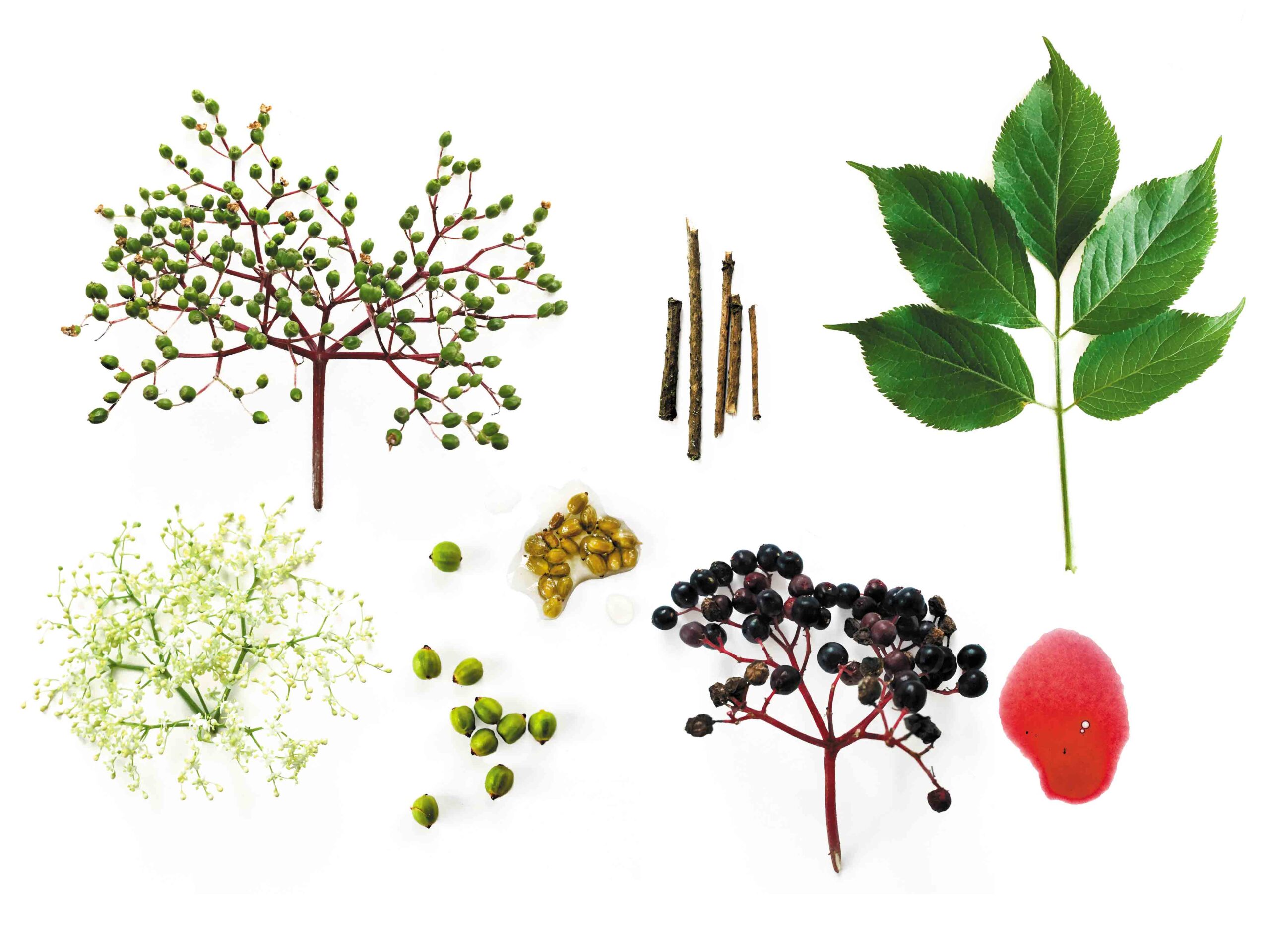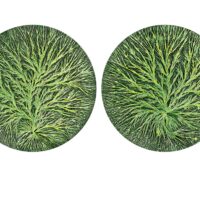On February 2, the annual meeting of the Section for Agriculture started. The topic: ‹Quality through biodynamics›. How can Demeter agriculture maintain and increase its high and highest quality from the soil to the finished product? Those working in the biodynamic agriculture and food industry are looking for answers. A conversation with the three people responsible: Jasmin Peschke, Ueli Hurter, and Jean-Michel Florin. The questions were asked by Wolfgang Held.
How did you decide on the topic of ‹quality› for this year’s annual conference?
Ueli Hurter The topic of ‹quality› is one of the core questions of biodynamic agriculture, which is why we always dedicate ourselves to the question of quality, the internal content. With Jasmin Peschke’s research on nutrition and the publication of the book ‹Vom Acker auf den Teller› (From the field to the plate), the topic of quality became the center of attention.
Jean-Michel Florin Biodynamic agriculture has been growing steadily for several years. This is gratifying! Not only is the number of farms growing, but the farms themselves are also growing strongly in some cases, and production and processing are becoming more professional and efficient. Of course, the farms keep asking themselves how they can maintain the high quality and not lose it to higher efficiency.
Does this concern the tension of quality and quantity?
Florin Yes, they don’t have to be opposites! At the conference, farmers will show how we can improve the quality of food with the preparations. That’s where it gets specific! Gardeners and winegrowers who grow medicinal plants and wine and are familiar with the subtle quality issues, show us how to train your own perception and actually influence the sensually perceptible quality with the preparations. That’s what the winegrowers say, but why shouldn’t this apply to all products?
We then see the quality on the plate. That’s a question for you, Jasmine, as a nutritionist.
Jasmin Peschke Yes, the question of quality prompted the people around Rudolf Steiner to ask for a spiritually-based agriculture. It led to the agricultural course because farmers noticed that soil fertility is declining and the products are losing their quality. In this context of quality, I also understand how Rudolf Steiner expresses himself to Ehrenfried Pfeiffer. Pfeiffer asked him about what is now called the action gap. How is it that people study and gain spiritual insights, but still don’t act accordingly, do not take any initiative? Rudolf Steiner replied that it was due to the diet. The way products are designed, they no longer enable us to lead the spiritual to the physical. Yes, this is a question of quality. And this is why it is also important to take this up at the conference. As we near the hundred-year-mark of the agricultural course and Demeter products will become more and more well-known, especially in Central Europe, where they are present in supermarkets everywhere, it is important that we become aware of the quality at all levels of nutrition.
The conditions for Demeter products are very good: Many customers have the feeling that Demeter products are slightly better. I also encounter this at trade training. The experts of the supermarket chains confirm that products from biodynamic farming have an excellent image, an image of how organic farming should actually be. This is a very positive picture. But of course, it is also interesting to see how this happens, what is actually behind it. And this is a question of quality! It’s not only a question of ‹what› you do but also ‹how› you do it.

What is it like to visit a Demeter farm? Do you immediately get the impression of quality? Do you feel: It is good here?
Hurter You could say that, but this ‹good› is completely different at every farm. This shows our concept of agricultural individuality. A messy farm full of life can make a very good impression. Then an hour later you come to a neighboring farm, where everything is lined up, arranged, and wiped and there is less life and yet you feel: It is good here!
Does each farm have its own quality?
Hurter There is no such thing as the ideal archetypal Demeter farm. Rather, every farm has its own special expression of something that is in general inferior, but as such, it is then quite noticeable, intuitive, and inspiring to experience. If you come to a farm and you cannot let go of the feeling that something is not yet good here, then this doesn’t mean that certain standards are not met, but rather that it has not yet reached its very own form. These are principles that unite us and are universal. I enjoy talking about the universal impulse, which points to individualization.
If this field of tension of universal individualization is not there, then you have the feeling that something is wrong. Then it is often not an agronomic question that is at stake, but mostly it is a social question. For example, ownership is unclear or there is tension among the colleagues.
Is quality about being true to yourself?
Hurter … if you knew who you are, who you want to be true to.
Peschke In preparation for our annual conference, we asked ourselves what creates quality. What are the inner soul conditions that will determine if what we are dealing with will be good? This depends on attitude, beauty, and mood. What attitude do we have on the farm, in the processing of food? Is there a creative will to create something beautiful and thus create an atmosphere? This creates quality!
Florin Yes, how do I recognize a good Demeter farm? First of all, it is an atmospheric perception of how the different things interact with each other, so that plant, animal and man and landscape and weather become a whole. The stages of work are not separate from each other but form something common, an inner logic. The fields of work are separate, but it is a whole.
At our annual conference, farmer and baker Oliver Clisson talks about quality. He grows grain and has developed a gentle way of grinding and baking. Every step is considered so that there is no inner rift. It is not enough to take care of the soil, the processing of the grain is just as important. It is about accompanying the entire journey. That’s why I’m happy when the flour is ground on the farms and even baked into bread. This leads to a holistic atmosphere when you not only produce raw materials and then sell them, but also work all the way to food.
What skills are important?
Hurter Well, this is as diverse as people are different. There are sanguine farmers and choleric or melancholic farmers and everyone has to find their way. Of course, it also has to do with the cultures and animal species that you have on the farm. As a phlegmatic person, you won’t keep goats, that would be difficult. It is a characteristic of the biodynamic farmers that a very close bond is established between the farmers and their farms. I think it’s stronger than at other farms. This is due to the atmospheric sensitivity. The atmosphere is created not only because you work materially, but also from this sensitivity. I would like to make one more thing clear: there is the view that when we talk about the agricultural organism, we emphasize that the people who work there would also be part of it. You have to be very careful about that. Because the connection of people to the soil is no longer keeping up with the times. We have broken away from this connection after terrible confusion in the 20th century. When we are talking about a connection here, it is that of the farm to the farmer and not the farmer’s connection to the farm and to the soil. The freedom of the working farmer is the primary concern. The soil can enter this sphere of freedom, but we human beings must no longer get into the sphere of connection to the soil.
Peschke In my book ‹Vom Acker auf den Teller› Ueli Hurter described beautifully how he worked on his fields. As a farmer, Ueli knows the soils so well that when it rained, he knew which field he can still drive on and which one he can’t. There is no measure that is equally good for everything. I think that’s what makes the farm and the relationship of us human beings to the farm unique.
Florin In a recently published book on biodynamic viticulture, winegrowers were asked about this way of farming and their desire to get engaged in this type of cultivation. So it’s about constantly asking ourselves the question of how to open up to the animals and the landscape in such a way that they tell us how they are kept, how they want to be cared for. They describe the fact that one applies fewer recipes and methods here and rather engages with beings in order to walk the path with them. One winemaker puts it into words: «I start talking to the plants.»
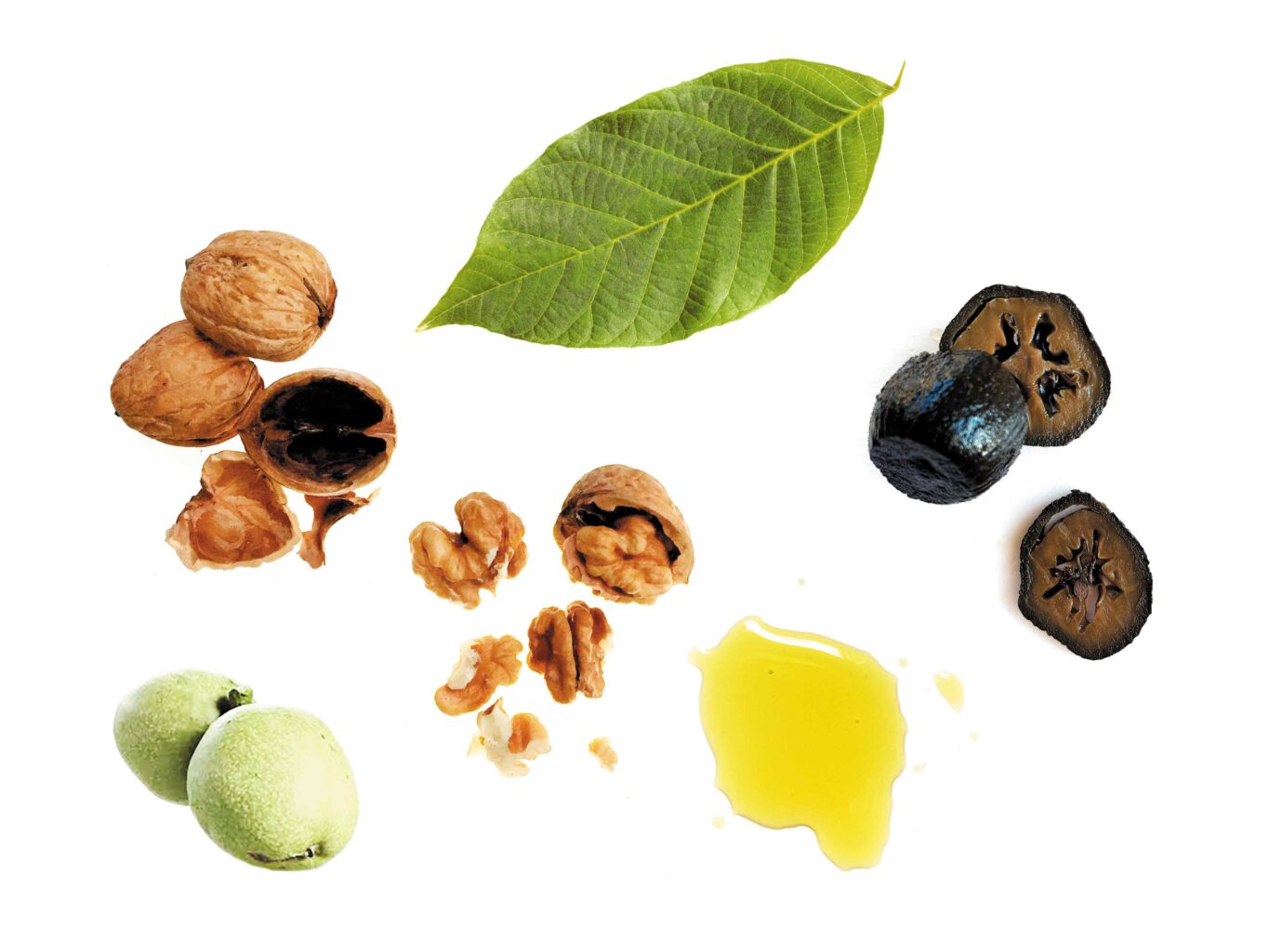
Here, the question of quality goes beyond organic farming?
Hurter Of course, this is evident in many fields. As Jasmin said: The question of quality of nutrition is constitutively part of us. And that was different from the genesis of organic farming. There, the roots lay more in nature conservation. I would almost say, in Switzerland, Austria, Italy, and England, the ecological truth, the respect for creation was more constitutive. The pioneers of organic farming were often religious in a good sense. Going against creation is simply heresy. For biodynamic farming, the question of quality has been important from the very beginning.
Of course, nutrition is also about enjoyment – it should taste good. But at the end of the day, it is important that nutrition supports us in this so that we can really grasp and implement what we recognize. That is today’s task, it fulfills us and creates meaning. This is our contemporaneity because we have been released into freedom, no longer led by a moral authority. Yes, Rudolf Steiner is consistent with this view of freedom towards people. And now one of his employees asks him, and of course, he writes an answer specific to him, but that has been incorporated into us: Why don’t we do what we recognize? And then he suggested that we are missing something to have this strength, to have this moral courage, even though it is uncomfortable. He says because we don’t have the right substances within us. That is his answer.
This has been confirmed in your research on nutrition?
Peschke Yes. In the living, quality is measured by the degree of the encounter. It is worth asking what the food provides me with in terms of encounter quality. Encounter is interesting when it also triggers something, when we are also stimulated by the senses, also in digestion. These can be foods that have developed their own character, that have developed a balance between growth and maturity and differentiation. They have not been driven by nitrogen, but have been able to produce the quality of maturity and thrive in the environment where they also develop vitality and resilience. When I eat such foods, I have a corresponding experience, I encounter diversity. Today we know that a diverse diet has a positive effect on the microbiome in the intestine and that in turn strengthens our immunity.
Then such a quality is not more expensive, but possibly cheaper.
Peschke You only have to include the health costs, the repair costs, all these costs that arise in conventional agriculture due to nitrate and pesticides in drinking water, and much more.
Where is the spiritual dimension of quality?
Florin If we go back in time, we see how important shared meals were. Today, the diet has been divided into two parts: Every now and then you buy something extraordinary to eat, and otherwise in everyday life, you eat for the sole reason of no longer being hungry. The focus is not on the quality of encounters. But it is part of the quality of the spirit that we have to develop into the ability to perceive, that we have to develop ourselves. Yes, that means I have to get involved in the matter, just as it happens with a tasting. What are the people saying who are now more sensitized, but do not know whether they eat biodynamic or conventional products? Conventional products taste flawless. You can’t notice a problem. But it’s boring, without character. There is no encounter, and because there is no encounter, there is no feeling. I don’t have any emotions. In the case of biodynamic products, people describe that they feel an encounter, an experience, like something touches them. This experience feeds me! This experience is an important part of quality. What happens so seemingly fleetingly has weight, because it is the encounter with a being.
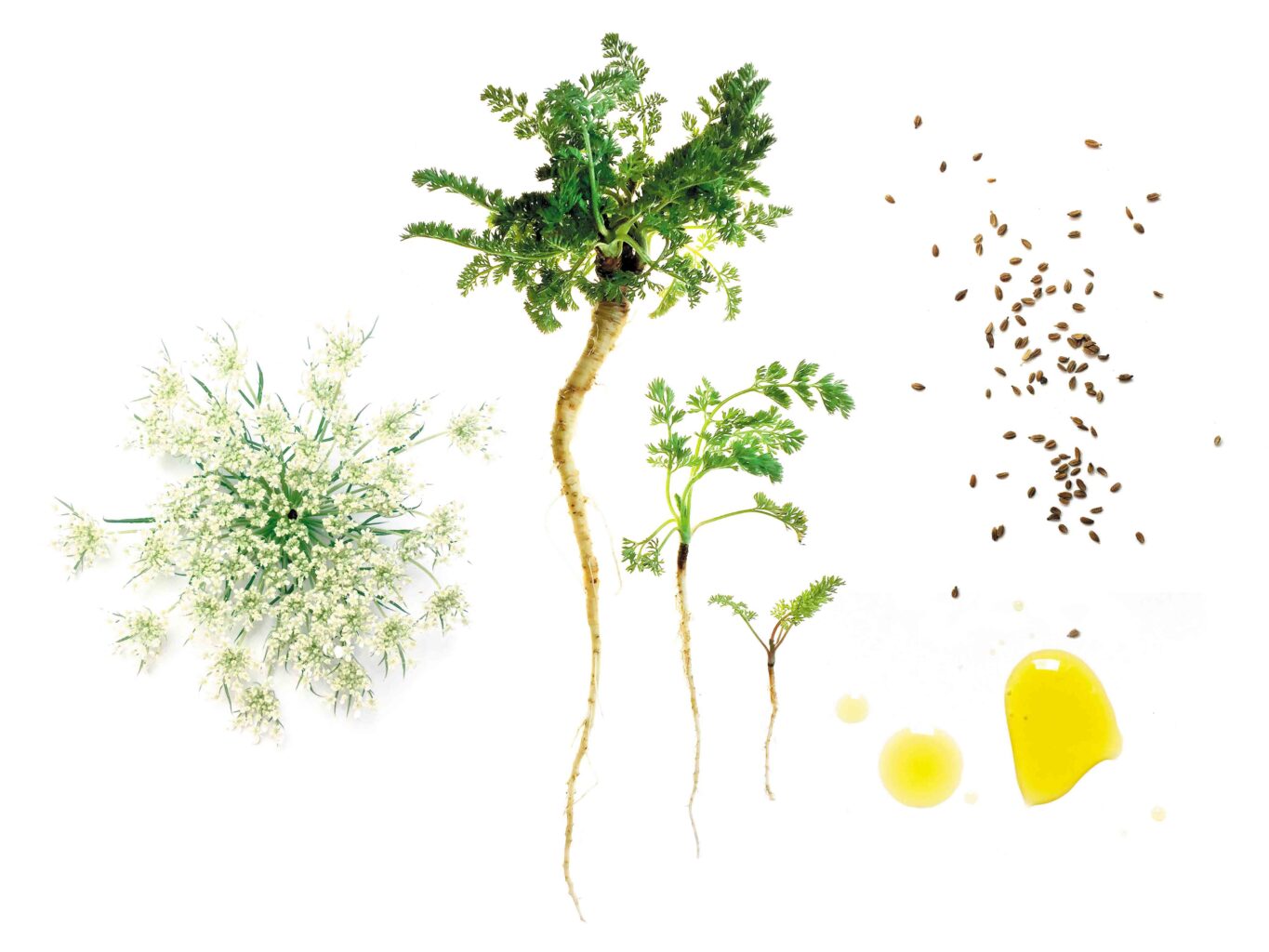
The most spiritual encounter I have with other people and the most material one is with food. What is the relationship there?
Florin When we hold courses, there is an exciting moment at our joint lunches. Everyone brings something from their farm. This is a celebration because everyone is interested in what their colleagues bring to the table. Your bread, your vegetables, your cheese! You eat to eat, not just to find strength, to be full. You are present with all your senses. Through the experiences and adventure in the material, we can then better build the bridge to the other person. Or in other words: From our alienating situation to the world today, a more substantial encounter and experience while eating is often the first step towards a new ability to meet. But the diet must also offer something. It must allow this encounter of beings.
Hurter Today, of course, we have become – and rightly so – demanding when it comes to food. How boring and monotonous the diets used to be! Three times a day the same, salt-free food. We need a lot of variety and a range of flavors today. We need relief formations in the sour, sweet, and salty. That didn’t exist before. And then there’s this simple truth that all that I eat, my brother, my sister can’t eat. Eating is a selfish act. That’s why we are moved by such a sentence: «Food is for sharing.» This is not a degustation quality, but a social one. I could eat it, but I’ll share it. It is not about charity. A typical situation in the family is that there may not be so much of one or the other: we sit at the table and everyone is hungry. Does the eldest get more or all the same amount? That’s how it is at the table and that’s how it is in the world. Do the rich get more or those who work? How is it? The question of justice is directly related to food.
Where do you see the need for development in the quality issue at Demeter?
Hurter Well, I would look for it less in the field or in the stable, but rather in the downstream steps. Instead of talking about ‹value creation›, we prefer to talk about ‹quality creation›. In the event of incorrect processing, we can lose the quality that we have gained during cultivation and harvesting. Demeter represents biodynamic cultivation and gentle and developing processing. This is also what we want to focus on at the conference. There is still a lot of potential.
Does this lead to the idea that materials also have a biography?
Hurter The core of our concept of quality is that it depends on the genesis, on the biography. That of an apple, but also that of the tree and the farm on which it stands. We are not talking about an analytical quality, but about the arc of a process that I can eat in the end. It is a concept of quality that reaches far into the periphery and then condenses into the apple, the bread, the cheese. Measuring the ingredients then means checking this quality.
The Nutriscore is then only a shadowing?
Hurter A shady shadow.
Florin In processing, especially if you want it to be efficient, you use the machines that you find on the market. If we want to develop food biographically, want to ‹refine› it in the original sense of the word, if we want to take it a step further, then there is still a lot to do. Cheese made from raw milk is one example. There are many studies that show what we have already lost in quality with pasteurized milk. Some of the things that we lose on the way of production can hardly be measured analytically but can be tasted. This applies, for example, to the grinding of the grain. The image-creating methods also bring light to this.
Today, due to climate change and due to years that are too dry or too moist, we often have fewer good wine varieties, for example. With the preparations, the winegrowers can now compensate for these fluctuations of the climate. Winemakers work very well with it. If a year is too moist, then they spray little horn manure, but more horn gravel. This year’s apples are not as well-ripened and not particularly durable because it was too moist. With the preparations, the fruit growers were able to create a balancing effect here. We can still develop a lot.
Peschke This includes understanding that food is more than a collection of nutrients. With the apple, we often hear that it has matured around the corner from the farmer, but then we squint at the numbers on vitamins and secondary plant ingredients. I can’t make an apple out of these nutrients. We should think ahead. Or let’s have a look on the medical level. Civilization diseases such as ADHD or autism, autoimmune diseases, or allergies are related to our diet. When we’re talking about ADHD, there are studies that show that additives in industrial food processing promote this disease. There is still a lot to understand, also in connection to the intestinal microbiome.
Ueli mentioned the social quality: You can’t feel well if your neighbor is struggling. Hunger and obesity today, that is the terrible picture of this fact. Quality is then something that can only be thought of holistically and is defined by the WHO with the term ‹one health›. The more we think in relation, the more likely it is to be good.
Florin This means not to think functionally. We eat to eat, not simply to be full. We live to live, not to achieve something or to work. Life is about the encounter and food is about the encounter.
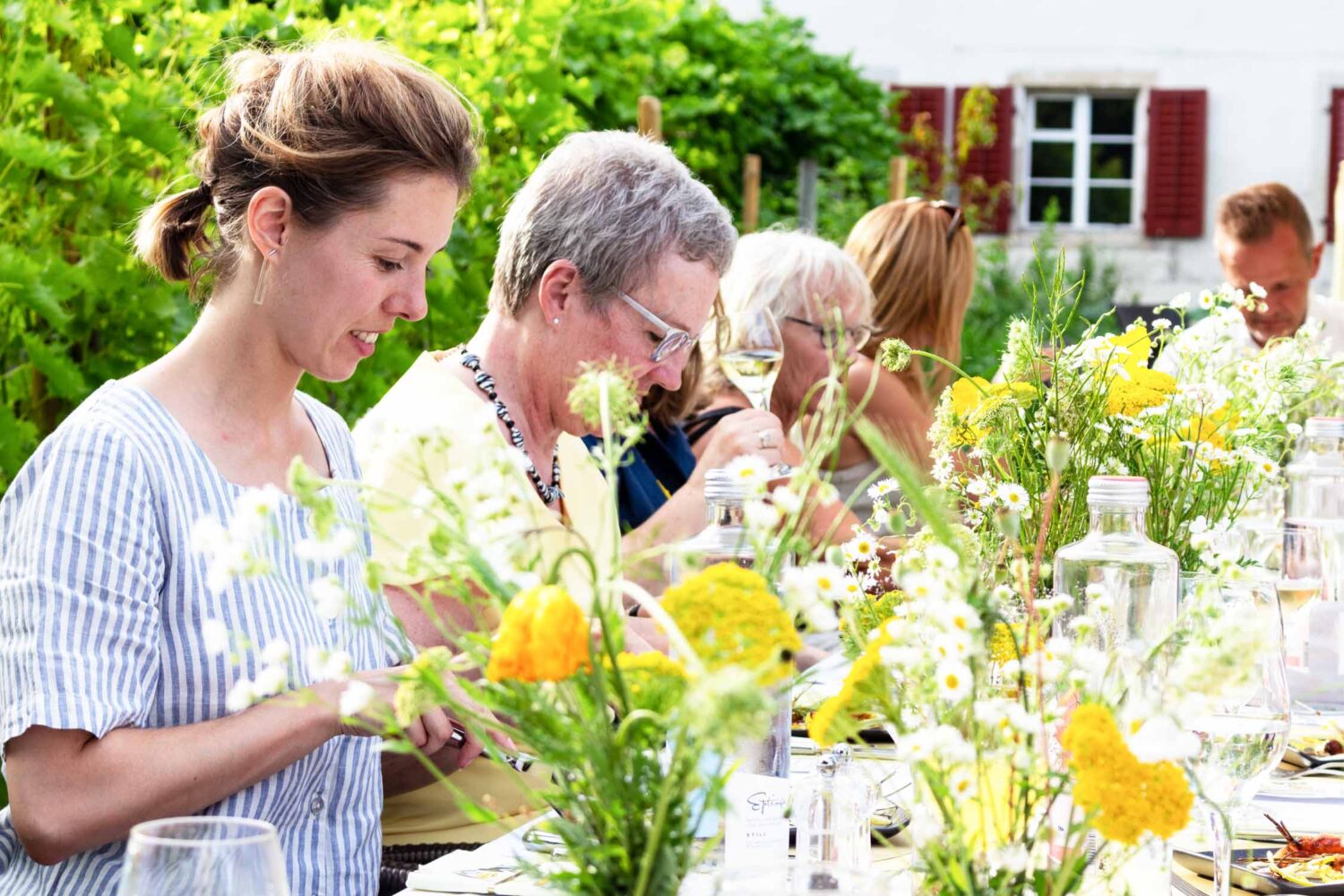
Event
KlosterFarbenDinner
The four-part series by the designer and former designer at the Wochenschrift Nina Gautier, in collaboration with the Dornach Monastery, invites you to a special experience. At any time of the year, the hosts focus on a plant that merges color, art, and cuisine into a wildly noble overall bouquet.
More: Nina Gautier
Nächstes Dinner Der Löwenzahn, Thursday, April 7, 2022, 6 p.m., Klostergarten & Refektorium (Reservations under: info@klosterdornach.ch, 061 705 10 80)

